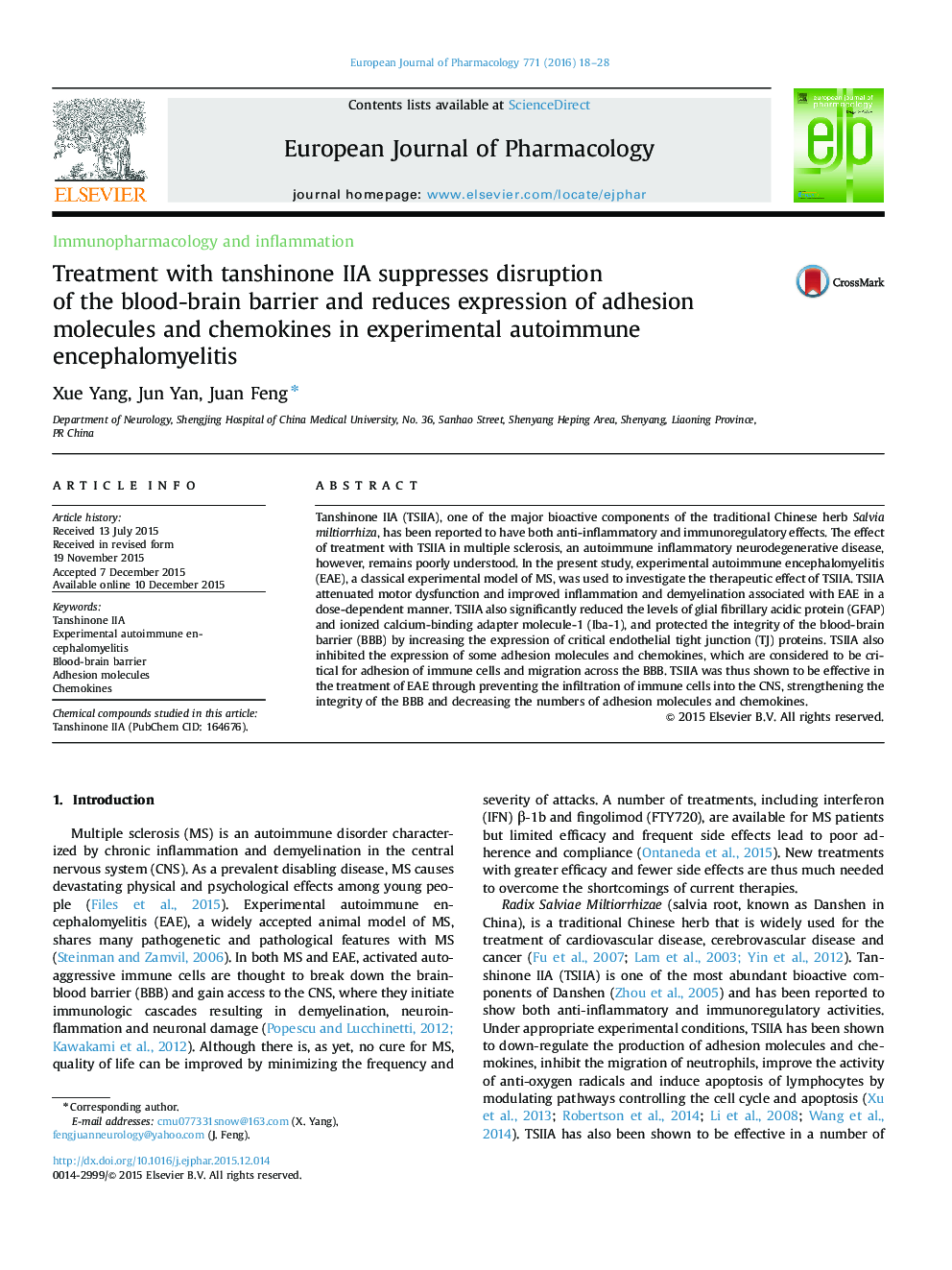| Article ID | Journal | Published Year | Pages | File Type |
|---|---|---|---|---|
| 2531041 | European Journal of Pharmacology | 2016 | 11 Pages |
Tanshinone IIA (TSIIA), one of the major bioactive components of the traditional Chinese herb Salvia miltiorrhiza, has been reported to have both anti-inflammatory and immunoregulatory effects. The effect of treatment with TSIIA in multiple sclerosis, an autoimmune inflammatory neurodegenerative disease, however, remains poorly understood. In the present study, experimental autoimmune encephalomyelitis (EAE), a classical experimental model of MS, was used to investigate the therapeutic effect of TSIIA. TSIIA attenuated motor dysfunction and improved inflammation and demyelination associated with EAE in a dose-dependent manner. TSIIA also significantly reduced the levels of glial fibrillary acidic protein (GFAP) and ionized calcium-binding adapter molecule-1 (Iba-1), and protected the integrity of the blood-brain barrier (BBB) by increasing the expression of critical endothelial tight junction (TJ) proteins. TSIIA also inhibited the expression of some adhesion molecules and chemokines, which are considered to be critical for adhesion of immune cells and migration across the BBB. TSIIA was thus shown to be effective in the treatment of EAE through preventing the infiltration of immune cells into the CNS, strengthening the integrity of the BBB and decreasing the numbers of adhesion molecules and chemokines.
